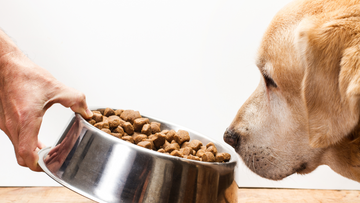As a dog owner, you’re probably already doing everything possible to ensure your furry friend lives their best life. But have you ever considered the role Vitamin D plays in their overall health? This essential nutrient has become a common topic for human supplementation but is often overlooked for dogs. Let’s dive into what you need to know about Vitamin D for your dog, including why it matters and how you can make sure your pet gets just the right amount.
What is Vitamin D?

Vitamin D is often called the “sunshine vitamin” for humans, but for dogs, it’s all about their diet. Humans synthesize Vitamin D from being in the sun, but dogs need to get this nutrient from their food. Vitamin D helps to support your dog’s bone health, immune system, and muscle function. It also helps regulate calcium and phosphorus levels, which are essential for strong bones and teeth. Without enough Vitamin D, your dog could face serious health issues, including brittle bones and teeth and weak muscles.
Signs Your Dog May Need More (or Less) Vitamin D
How can you tell if your dog’s Vitamin D levels are off? Vitamin D deficiency symptoms might include lethargy, weak bones, and even poor appetite. Because these symptoms can be attributed to many diseases, it might be hard to notice a deficiency. On the flip side, too much Vitamin D can lead to toxicity, causing kidney problems or excess calcium in the blood. If you’ve noticed any unusual changes in your dog’s energy or health, consult your veterinarian.
Sources of Vitamin D for Dogs
High-quality dog foods are a great source of Vitamin D, as many are fortified with essential nutrients. Search for premium brands that prioritize balanced nutrition. If your vet recommends it, supplements can also be a safe and effective option. However, don’t give your dog human Vitamin D supplements or foods like fatty fish unless recommended by your vet.
Getting the Right Amount
Always work with your veterinarian first and ask for diet recommendations specific to your dog. Regular check-ups can help monitor your pet’s needs and catch any potential deficiencies early. If you’re considering supplements, always consult your vet first to ensure the dosage is safe and appropriate. Remember, more isn’t always better when it comes to nutrients.
FAQs About Vitamin D
-
Are some breeds more prone to deficiencies? Yes, large breeds or senior dogs may need closer monitoring.
-
What’s the best way to provide Vitamin D? Ask your vet for recommendations on food and supplements. They know your dog’s breed, age, and activity level, which will ensure the right choice for your dog.
Vitamin D might not be the first thing that comes to mind when thinking about your dog’s health, but it’s crucial for overall health. By providing a balanced diet, monitoring their health, and working with your vet, you can ensure your furry friend gets all the nutrients they need to thrive.






















